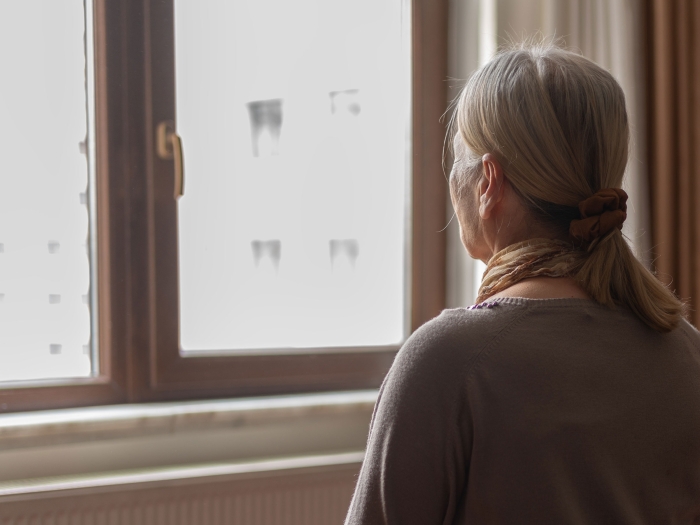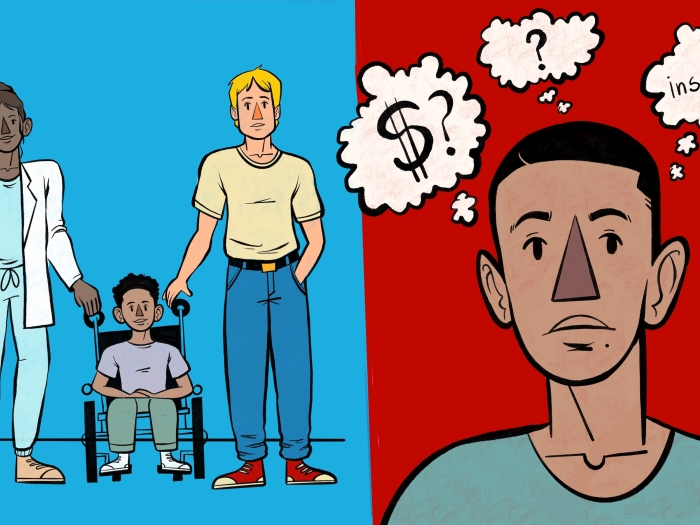A team of gastroenterologists and hepatologists examine psychosocial factors in older Americans with gastrointestinal conditions
5:00 AM
Author |

While life expectancy rates for older Americans are rising, nearly 40% of adults report living with a digestive disease of some kind.
“Many people don’t realize that these conditions are very common in ambulatory care,” said Michigan Medicine gastroenterologist Shirley Ann Cohen-Mekelburg, M.D., who specializes in conditions like inflammatory bowel disease, Crohn’s disease and ulcerative colitis.
“Ultimately, this creates an excess in health care spending in the United States. Not only are these conditions debilitating for the millions of people living with them, but they’re also very expensive to treat.”
Cohen-Mekelburg says that in recent years, there has been a greater emphasis among providers in detecting why so many Americans are developing digestive diseases.
However, she notes that current approaches often fail to consider how things like psychosocial factors contribute to these conditions.
“As physicians, it’s important for us to pay attention to psychosocial factors involved in the lives of our patients, but they often go overlooked,” she said.
“These factors have the potential to significantly impact gastrointestinal health, and they also play a crucial role in the overall wellbeing of our patients.”
This notion inspired Cohen-Mekelburg and a team of fellow gastroenterologists and hepatologists to examine the rates of loneliness, depression and social isolation in older adults both with and without digestive diseases.
Their findings were recently published in Clinical Gastroenterology and Hepatology.
Cohen-Mekelburg notes that the team also “wanted to quantify these numbers with self-reported rates of poor health.”
“Our research involved analyzing data from 2008 to 2016 from the University of Michigan Health and Retirement Study.
This is a longitudinal panel study that involves a representative sample of approximately 20,000 individuals in the U.S. who are 50 years and older, as well as their spouses,” she said.
SEE ALSO: Examining the Consequences of Fragmented IBD Care
“It’s important to note that loneliness refers to the subjective distressed feeling of being alone or lacking companionship. The correlation between loneliness and depression is well established.”
However, Cohen-Mekelburg adds that social isolation refers to the “objective physical separation from other people, which is independent of psychological well-being.”
“Therefore, there are people who live in isolation but are well-adapted, not lonely and report high psychological wellbeing. But on the other hand, there are also people who are socially connected, yet suffer from low psychological wellbeing and loneliness. This, despite having a strong social network.”
As physicians, it’s important for us to pay attention to psychosocial factors involved in the lives of our patients, but they often go overlooked. These factors have the potential to significantly impact gastrointestinal health, and they also play a crucial role in the overall wellbeing of our patients.”
– Shirley Cohen-Mekelburg, M.D.
Out of a pool of 7,110 participants, the team identified 56% of individuals with a digestive disease and 44% without one.
“Overall, 60.4% and 55.6% of respondents with and without digestive diseases reported loneliness, while 12.7% and 7.5% reported severe depression, and 8.9% and 8.7% reported social isolation, respectively,” said Cohen-Mekelburg.
“We found that individuals with a digestive disease were more likely to report ‘poor-or-fair’ health when compared to those without one. And among patients with a digestive disease, loneliness, as well as moderate to severe depression, were associated with greater odds of self-reporting ‘poor-or-fair’ health.”
Cohen-Mekelburg says that she hopes these findings eventually empower gastroenterologists to “screen patients for depression and loneliness,” in addition to their physical symptoms. “By doing this, providers can better establish care pathways for mental health treatment for their patients, which is hugely important,” she said.
SEE ALSO: Feeling anxious? Try this breathing technique
“Our research shows that gastroenterologists are in a unique position to help their patients achieve good overall health. If you’re a clinician who also happens to treat older adults, even better. Being aware of the link between loneliness, depressive symptoms and digestive diseases can really benefit your patients from a holistic perspective.”
Paper cited: “Loneliness and Depressive Symptoms are High Among Older Adults with Digestive Disease and associated with Lower Perceived Health,” Clinical Gastroenterology and Hepatology. DOI: 10.1016/j.cgh.2023.08.027

Explore a variety of health care news & stories by visiting the Health Lab home page for more articles.

Department of Communication at Michigan Medicine

Want top health & research news weekly? Sign up for Health Lab’s newsletters today!





